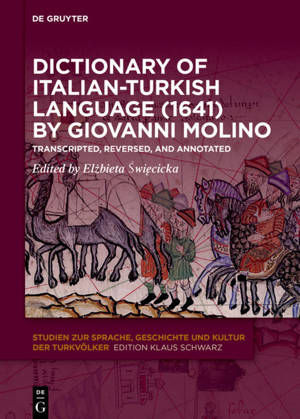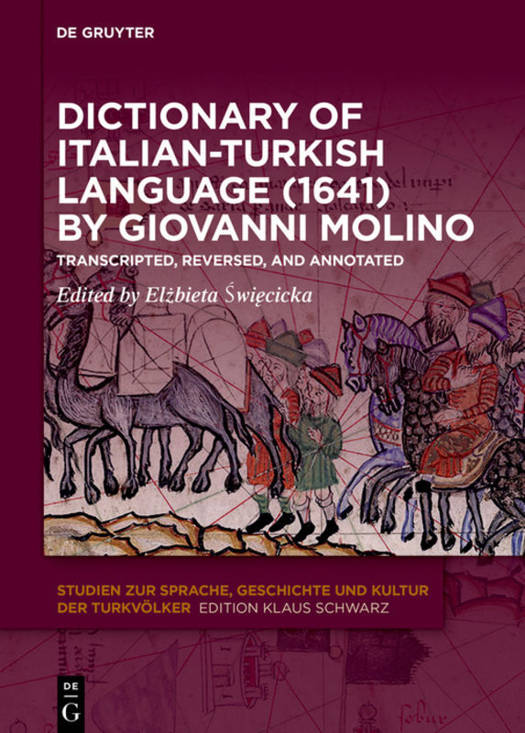
- Afhalen na 1 uur in een winkel met voorraad
- Gratis thuislevering in België vanaf € 30
- Ruim aanbod met 7 miljoen producten
- Afhalen na 1 uur in een winkel met voorraad
- Gratis thuislevering in België vanaf € 30
- Ruim aanbod met 7 miljoen producten
Zoeken
Dictionary of Italian-Turkish Language (1641) by Giovanni Molino
Transcripted, Reversed, and Annotated
€ 131,95
+ 263 punten
Omschrijving
Giovanni Molino's Dittionario Della Lingua Italiana, Turchesca (1641), is the first extensive Turkish dictionary of its kind, with nearly 8000 lexical head entries excerpted, not from the Ottoman literature, but the everyday Turkish language, the vernacular for at least a part of the population of 17th century Constantinople.
Molino, born Armenus Turcicus Yovhannēs of Ankara, was exposed to the Turkish language from childhood, unlike other authors of the known 'texts in transcription". In Armenian cultural history, he is remembered as a man of letters, a publisher and the translator of religious texts, whose services to the history of the Turkish language and the corresponding contribution to Ottoman Turkish culture were to this date unknown.
The editor has reversed and reorganised the material of the lexicon from Italian-Turkish to Turkish-Italian. The lexical entries of Molino's dictionary are presented according to morphological and phonological principles, with their orthographic variants side by side, revealing information on the morpho-phonological patterns of Ottoman-Turkish at that time. The language Molino recorded sounds almost like contemporary Turkish and can be considered a bridge to the modern Turkish language.
Molino, born Armenus Turcicus Yovhannēs of Ankara, was exposed to the Turkish language from childhood, unlike other authors of the known 'texts in transcription". In Armenian cultural history, he is remembered as a man of letters, a publisher and the translator of religious texts, whose services to the history of the Turkish language and the corresponding contribution to Ottoman Turkish culture were to this date unknown.
The editor has reversed and reorganised the material of the lexicon from Italian-Turkish to Turkish-Italian. The lexical entries of Molino's dictionary are presented according to morphological and phonological principles, with their orthographic variants side by side, revealing information on the morpho-phonological patterns of Ottoman-Turkish at that time. The language Molino recorded sounds almost like contemporary Turkish and can be considered a bridge to the modern Turkish language.
Specificaties
Betrokkenen
- Uitgeverij:
Inhoud
- Aantal bladzijden:
- 514
- Taal:
- Duits
- Reeks:
- Reeksnummer:
- nr. 23
Eigenschappen
- Productcode (EAN):
- 9783110684797
- Verschijningsdatum:
- 20/01/2020
- Uitvoering:
- Hardcover
- Formaat:
- Genaaid
- Afmetingen:
- 170 mm x 244 mm
- Gewicht:
- 1016 g

Alleen bij Standaard Boekhandel
+ 263 punten op je klantenkaart van Standaard Boekhandel
Beoordelingen
We publiceren alleen reviews die voldoen aan de voorwaarden voor reviews. Bekijk onze voorwaarden voor reviews.










